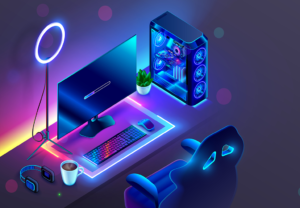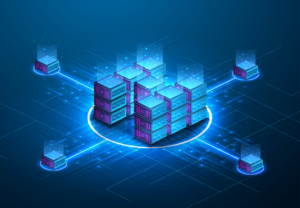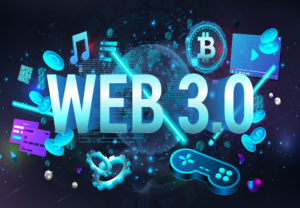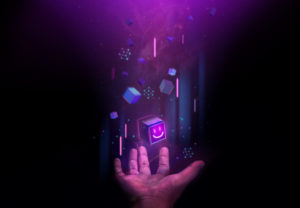Blog
Are You Ready For the Next Generation of AI
Technology inspires our culture every day. From Star Trek to Star Wars to Wall-E, tech has grabbed ahold of our collective imagination. Unfortunately, Web 3 isn’t likely to provide you with a personal lightsaber or your own starfighter yet, but it may get you much closer to a droid!
Many remember the utter awe when they first encountered Siri. Now Google offers extra services with its assistant as it can recognize songs from the beat you hum.
AI (Artificial Intelligence) is incredible and just getting started! Web 3’s revolution will bring about sweeping changes to every industry, and one of those ways it will change the world is through AI.
Machine Learning
Buzzwords like “Machine Learning” often remain undefined and hard to grasp.
The primary goal of AI is to make technology problem solvers for us. These problems range from sorting physical objects and information on online stores to better payment options.
Machine learning makes AI more autonomous as it can learn to do actions without explicit programming.
While Machine learning may sound like something far away, you already use its AI daily without realizing it! Traffic alerts on Google, driving assist, email spam filtering, and dynamic pricing are all examples of AI you’ve experienced even if you didn’t know it.
Most email systems have built-in spam filters that stop most annoying emails from ever being seen by you. Google’s use of machine learning is something you’re using every day. Its machine learning techniques make your GPS more efficient as AI can learn to predict traffic and driving times through user information.
AI can also directly help companies increase profits.
Companies can adjust pricing dynamically when people need the service most. For example, airlines can make tickets more expensive during the holiday season as AI can know the exact moment ticket buying heats up and adjust the pricing in real-time.
If this sounds interesting, wait until you hear about the next phase of AI deep learning.
Deep Learning
Deep learning takes machine learning to the next level by attempting to do more with AI.
It not only creates a machine that accomplishes tasks without explicit programming but one that can think more like us. For example, our brains use neurons to send signals through the body, which allows us to do specific tasks. Similarly, AI can have “neural networks” that act like neurons.
These neural networks are far from a gimmick, as deep learning has already significantly changed the AI space. The revolutionary nature of deep learning becomes more apparent when you watch it happen in real-time.
In chess, Google’s Alpha Zero AI defeated the best programmed AI in the world, which doesn’t sound that impressive until you realize Alpha Zero taught itself how to play.
Google also developed an AI that had learned communication well enough for one of their engineers to become worried that it was sentient.
Maybe these AI feats don’t sound helpful to you, but they point you to where AI will go in the future. If an AI can teach itself to play chess and speak, what’s stopping future engineers from creating an AI that can learn to drive?
As Tesla has already learned, nothing! Tesla used machine and deep learning techniques to teach their cars how to drive, which allows consumers to call their vehicle to them.
If this technology is still in its infancy and it’s already learning how to drive, can you imagine where it will go next?
How Web 3 Will Use AI
The most important and game-changing use of Web 3 will be in NLP or natural language processing technology. Language processing might sound rather basic, but the implications for our day-to-day life are more extraordinary than they might seem at first glance.
Artificial Intelligence can use NLP to speak like us and become more helpful assistants. Rather than learning to “speak computer” in code, Web 3 AI will learn to speak “person,” which could be applied in numerous practical ways.
For example, the most basic job of natural language processing is translation. The new web will be able to translate languages fluently and naturally. Perhaps in the future, AI could pick up foreign languages and automatically translate them back to yours.
Quick voice translation could open up new friendships and opportunities worldwide!
Another example, search engines like Google have room for improvement to become more natural. Google tries to match words you search to specific keywords, but it still doesn’t understand complete sentences or synonyms very well.
However, Google is already working on a project that improves search engines called MUM, or Multitask Unified Model.
Say you wanted to see what common issues your fridge has because it just broke down. You might have a major problem because you don’t know the make and model! You could take a picture of it and use these newer search engines.
AI will eventually reach the point where it recognizes the model of the fridge, the year, and its common issues, all without having to find the information yourself.
One last example is that NLP AI can categorize spreadsheets for us. For instance, it can easily organize and categorize names, phone numbers, bills, and more just from a photo scan. So, if we wanted to track all our expenses, we only need to have our receipts sent to our email.
Then, AI can automatically make a spreadsheet with graphics or just flat numbers. These are just some ways Web 3’s AI will help us in our daily lives.
If you want to learn more, then join us at W3BX!
Learn from the Experts How Web 3 Is Going to Change Our Lives with AI
How will Machine Learning change in the face of Web 3? How can you use this knowledge now to gain leverage in Web 3 in the future? Do you want to know these questions or already have an idea of how to take advantage?
Then join us at the Wynn Hotel in Las Vegas on October 10-13. You can either learn how Web 3 will change AI forever or present your idea so your project can get a first mover advantage.
Buy your tickets before someone else takes your spot and the potential that early Web 3 adoption offers.








